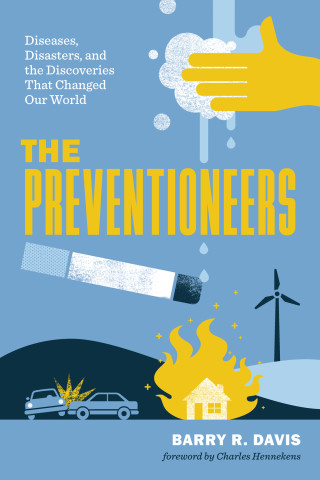
Reviews
... Introduction to Biosocial Medicine: The Social, Psychological, and Biological Determinants of Human Behavior and Well-Being is well positioned to be an informative and timely text and I would recommend the book for anyone—students, scholars, or layperson— aspiring to ascertain an understanding of the many factors influencing human behavior and well-being.
... a coherent, essential text for anyone teaching or practicing in the health sciences, including social work.
Each chapter in this book could be used as a stand-alone introductory reading for learners at any level of medical education, and the entire text would provide a solid introduction for medical students to the broader contextual issues of health and medical care... It is one thing to say that we in family medicine care for all patients with attention to their many and varied social contexts. It is an entirely different matter to teach and practice in a way that intentionally addresses biopsychosocial medicine. For those seeking a solid introduction to the breadth of scope that this entails, Introduction to Biosocial Medicine will be a valuable resource.
A compelling, clearly written, and original review of how social factors influence well-being, this timely and accessible book will greatly benefit students who intend to pursue further study in medicine.
Book Details
Preface
Part I. Understanding Human Behavior
The need to understand human behavior
What is behavior?
Well-being and the consequences of behavior
The impact of social inequality and social hierarchy on
Preface
Part I. Understanding Human Behavior
The need to understand human behavior
What is behavior?
Well-being and the consequences of behavior
The impact of social inequality and social hierarchy on behavior
How cultural context affects behavior
Social group identity, status inequality, and behavior
Motivation as a key mediator of behavior
Personality: Who we are
Neural structure as a basis of behavior
Cognition: How we think and what we know
How social inequality and stressful childhood experiences impact cognition, behavior, and well- being
Connecting the causes of early adversity to well-being over the life course: Understanding the causal links and the interventions thathold the most promise
Part II. Behavior and Well-Being
Physical well-being
Physical well-being beyond life expectancy
Social well-being
Summary
Part III. Inequality and Well-Being
Racial and ethnic inequality in health in association with educational inequality
How does inequality in access to medical care affect health inequality?
The differing impact of low education and low income on the health of minority groups
The origins and meanings of the concepts of race and ethnicity in the United States
The changing demographics of the population in theUnited States
The disparate impact of inequality on Hispanics and blacks
Summary
Part IV. Society, Culture, and Behavior
The impact of culture: The Cultural Cycle
Differing perspectives on the nature of social structure
The role of culture ininfluencing personality and behavior
Other contexts in which independence and interdependence Clash!
Acculturation: When people move across cultural boundaries
The role of social networks in affecting behavior
Summary






